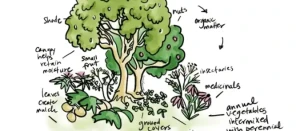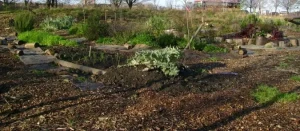SEARCH RESULTS > ARTICLES > Symbiotic relationships
In permaculture, the term "guild" refers to a grouping of plants, animals, fungi, and other elements that work together in a symbiotic and mutually beneficial way within a specific ecosystem or garden. The concept of guilds is derived from the observation of natural ecosystems, where different species coexist and support each other in various ways. Learn More
In the quiet depths of garden soil, a hidden symphony unfolds as plants engage in intricate relationships with microorganisms. Beyond the visible blooms and verdant foliage lies a complex network of interactions that profoundly shape the health and fertility of the soil. In this exploration, we delve into the nuanced world of plant-microbe relationships and their transformative impact on garden soil. Learn More
The microbiome in your garden soil refers to the diverse community of microorganisms that inhabit the soil. These microorganisms play a crucial role in maintaining soil health, nutrient cycling, and plant growth. The soil microbiome consists of various organisms, including bacteria, fungi, archaea, viruses, and microfauna (such as nematodes and protozoa). Here are some key points about the microbiome in garden soil. Learn More


